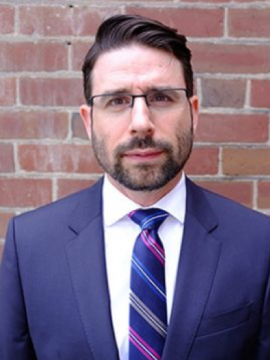Andrew Connolly
Research / Teaching Area
About
My research revolves around three topics: religion, literature, and neoliberal capitalism. In the past, I have studied the way religion and ecstatic religious experience is represented in American fiction during the 20th and 21st centuries. More recently, I have turned to the way people use religion to market products and celebrities. I have published articles on authors like James Baldwin and Don DeLillo as well as an article on Katy Perry and Megan Fox.
My current project examines the way publishers use the labels occult, New Age, and spirituality to market books. I am particularly interested in how this marketing moved public perception of alternative spirituality from a dangerous counter-cultural practice that resisted material and economic concerns to a sanitized resource that can help everyone improve themselves and reach their material and economic goals. In other words, I argue that publishers created and promoted a neoliberal conception of spirituality. By extension, I am interested and concerned about the way neoliberal capitalism affects the way we interact with each other, not just on a professional level, but also a personal level.
Teaching
WRDS 150 Research Areas
WRDS 150A – Celebrity Studies
It’s hard to get away from celebrity news. Whether it’s Kanye’s political stunts in the White House, Ariana Grande’s public split with Pete Davidson, Demi Lovato’s struggles with addiction, or Prince Harry and Meghan Markle leaving the royal family and moving to Canada, our lives seem saturated with information about the famous. To read an endless supply of commentary, analysis, and gossip about celebrities, all you need is an internet connection. So why do scholars study celebrities? What do academics do differently?
In this course we will look at articles about celebrities written by academic scholars. They ask questions like: Why do people develop attachments to celebrities? Why do celebrities share so much about their lives? Why do companies hire celebrities to endorse their products? Do celebrities actually have an impact on the way we think and talk about sex, gender, and race? What kind of impact do celebrities have on politics? These questions are framed by the disciplines that the scholars work in, including cultural studies, sociology, economics, gender studies, and media studies. Each of these disciplines has its own methods and conventions. In other words, a particular discipline influences what scholars ask questions about, how they phrase the questions, how they answer the questions, and how they present their findings. As a result, this course will not only introduce you to the academic study of celebrities, it will also introduce you to the various disciplinary approaches to research and writing in the arts and humanities.
Part of this introduction will be training you to participate in scholarly discourse. You will learn how to do scholarly research: how to find the information you are looking for, how to understand it, and how to evaluate it. You will also learn how to write and present your findings in a way that engages with scholars in a particular discipline or disciplines. In addition to instruction in the classroom, you will have multiple written assignments that will give you a chance to experiment with different aspects of academic research and writing, and receive attentive feedback on your work. This training will help prepare you to succeed in your academic career.
WRDS 150B – Do You Believe in Science? Science, Politics and Beliefs
“I don’t believe it.” That was Donald Trump’s response to a report on climate change prepared by more than 300 leading climate scientists. Trump is hardly the only person in the contemporary world to reject scientific findings. People dismiss evolution, the health benefits of vaccines, even that the earth is a sphere. This rejection of science can seem perplexing, especially for those who understand the rigorous process of producing scientific knowledge and theories. So why is it that some people simply do not believe in science?
This course looks at the ways scholars from various departments seek to answer that question. Some of the scholars develop wide ranging theories about why people believe what they believe. Others focus on specific people and the complexity of their belief systems. Some scholars even raise their own doubts about science and scientific methods. The differences in the approaches each scholar takes to this question sometimes relates to the discipline they are from. These scholars come from Political Science, Sociology, Philosophy, and English departments. Each of these disciplines has its own methods and conventions. In other words, a particular discipline influences what scholars ask questions about, how they phrase the questions, how they answer the questions, and how they present their findings. As a result, this course will not only introduce you to the academic study of science, politics, and belief. It will also introduce you to the various disciplinary approaches to research and writing.
